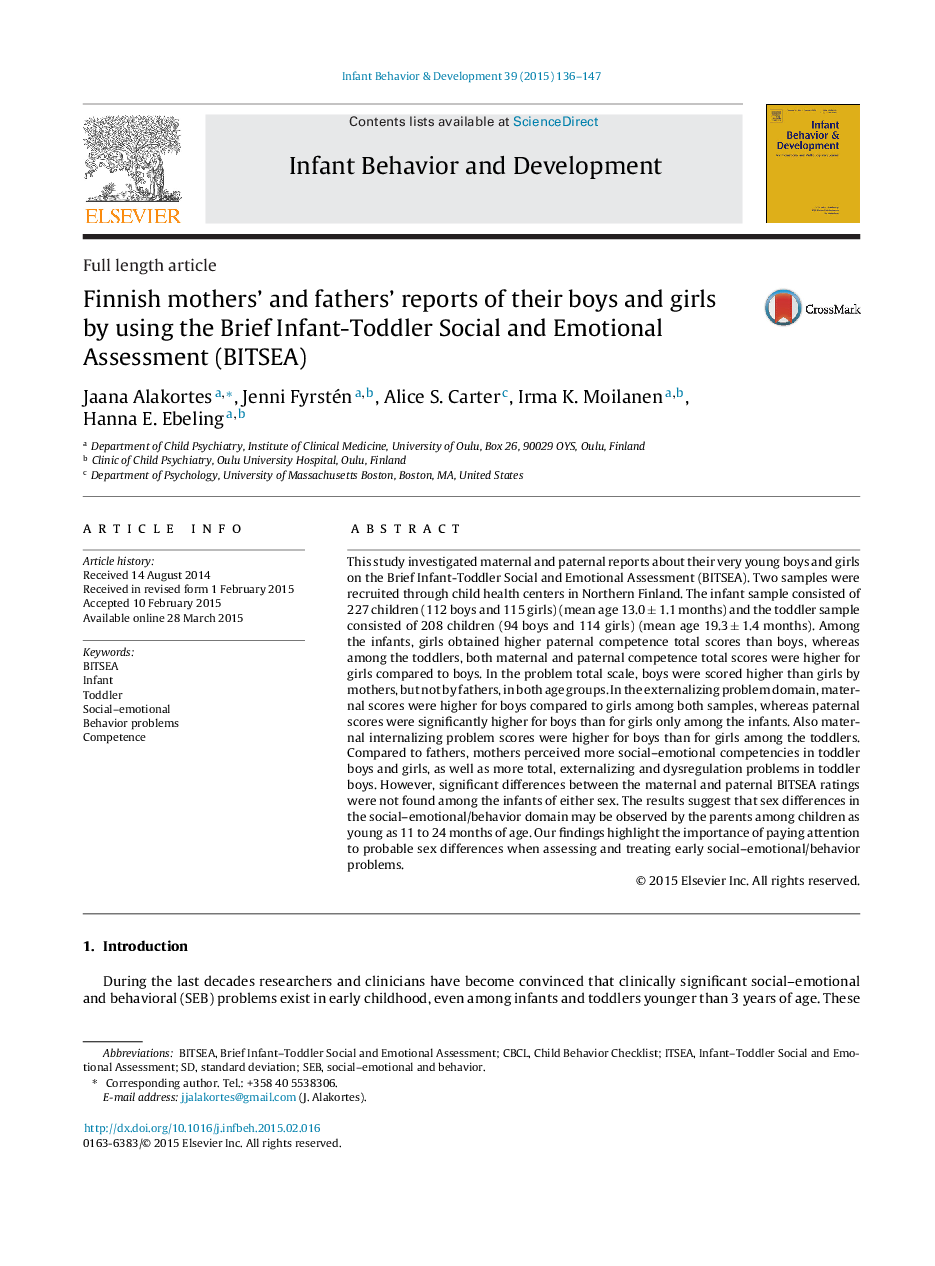| کد مقاله | کد نشریه | سال انتشار | مقاله انگلیسی | نسخه تمام متن |
|---|---|---|---|---|
| 917203 | 1473421 | 2015 | 12 صفحه PDF | دانلود رایگان |

• Finnish 1-year-old girls obtained higher BITSEA competence scores than boys.
• Finnish 1-year-old boys obtained higher maternal BITSEA problem scores than girls.
• Fathers may perceive fewer social–emotional competencies in toddlers than mothers.
• Mothers may perceive more behavior problems in toddler boys than fathers do.
This study investigated maternal and paternal reports about their very young boys and girls on the Brief Infant-Toddler Social and Emotional Assessment (BITSEA). Two samples were recruited through child health centers in Northern Finland. The infant sample consisted of 227 children (112 boys and 115 girls) (mean age 13.0 ± 1.1 months) and the toddler sample consisted of 208 children (94 boys and 114 girls) (mean age 19.3 ± 1.4 months). Among the infants, girls obtained higher paternal competence total scores than boys, whereas among the toddlers, both maternal and paternal competence total scores were higher for girls compared to boys. In the problem total scale, boys were scored higher than girls by mothers, but not by fathers, in both age groups. In the externalizing problem domain, maternal scores were higher for boys compared to girls among both samples, whereas paternal scores were significantly higher for boys than for girls only among the infants. Also maternal internalizing problem scores were higher for boys than for girls among the toddlers. Compared to fathers, mothers perceived more social–emotional competencies in toddler boys and girls, as well as more total, externalizing and dysregulation problems in toddler boys. However, significant differences between the maternal and paternal BITSEA ratings were not found among the infants of either sex. The results suggest that sex differences in the social–emotional/behavior domain may be observed by the parents among children as young as 11 to 24 months of age. Our findings highlight the importance of paying attention to probable sex differences when assessing and treating early social–emotional/behavior problems.
Journal: Infant Behavior and Development - Volume 39, May 2015, Pages 136–147